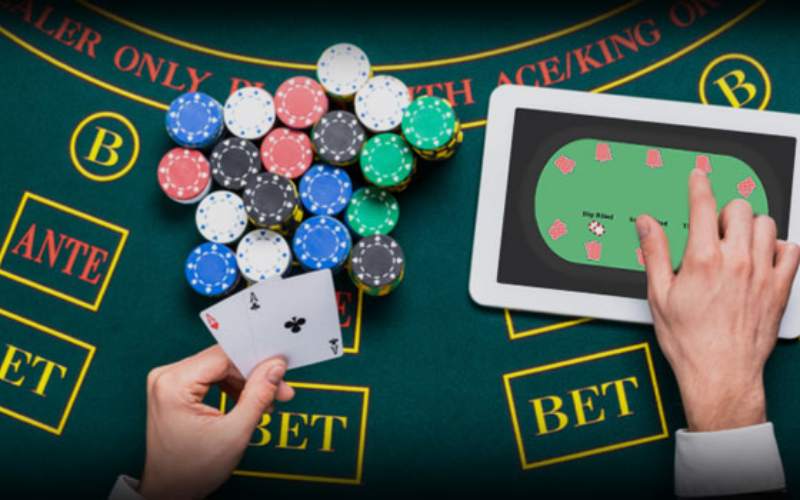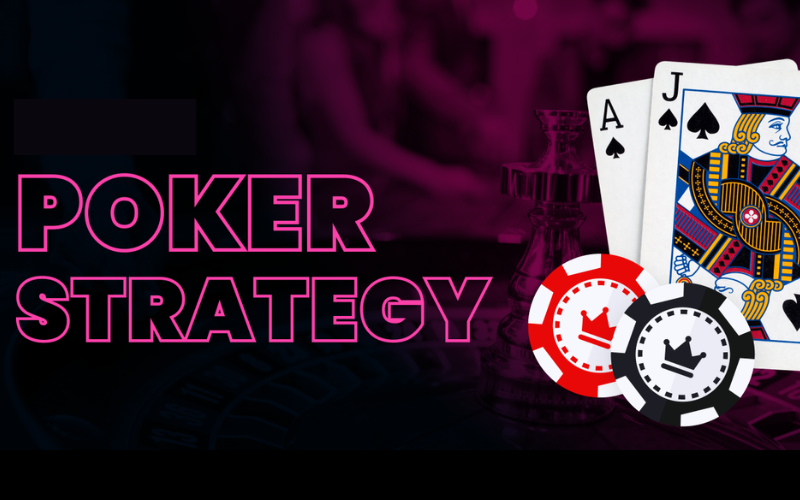Poker is a fascinating game of skill, strategy, and psychology. Whether playing casually with friends or competing in high-stakes tournaments, having a solid poker strategy can significantly improve your chances of success. The beauty of poker lies in its blend of mathematics and intuition, where the right approach can make all the difference. From learning the ropes to mastering more complex strategies, this article will cover it all when it comes to poker.
Understanding the Fundamentals of Poker Strategy
It’s essential to understand the basics to build a solid poker strategy. While short-term luck can play a part, long-term success in poker is the result of calculated risk-taking. To begin, consider the following fundamental principles:
Know Your Position
Position is one of the most essential concepts in poker. Players who act later in a round (such as those in the “cutoff” or “button” positions) have a strategic advantage because they can observe their opponents’ actions before deciding their move. Use your position wisely to control the flow of the game.
Starting Hand Selection
Not all hands are worth playing. A strong starting hand strategy is the foundation of successful poker play. For example, high-value pairs like Aces or Kings are worth raising, while weaker hands like 7-2 offsuit should usually be folded. Knowing when to play and fold is a key part of any poker strategy.
Master the Art of Betting
Your betting patterns should align with your strategy. Be aggressive when you have a strong hand to build the pot, but be cautious when your hand is weak or the board looks dangerous. Learn to mix up your bets to keep opponents guessing.
Read the Table
Poker is as much about observing others as it is about playing your hand. Pay attention to your opponents’ tendencies—do they play aggressively, or are they more conservative? Recognizing patterns can help you anticipate their moves and make better decisions.
Advanced Poker Strategies to Gain an Edge
Gain an advantage over your opponents by using advanced methods once you’ve mastered the basics. If you want to level up, here are several strategies:
Bluffing with Purpose
Bluffing is essential to poker but should be done intentionally and in the right situations. If you want to bluff successfully, you need to trick your opponents into thinking you have a better hand than you actually have. If you think you have a good range of cards or if your opponent displays signs of weakness, that’s when you should try to bluff.
Semi-Bluffing
A semi-bluff occurs when you bet or raise with a hand that isn’t strong yet but has the potential to improve (e.g., a flush or straight draw). This tactic allows you to pressure your opponents while enabling you to hit a firm hand on later streets.

Adjusting to Opponents
Flexibility is key in poker. Adapt your poker strategy based on the playing styles of your opponents. Being more aggressive can help you take advantage of tight players’ caution. To beat loose opponents, you need to be patient and wait for them to overcommit to the pot with strong hands.
Pot Odds and Equity
Understanding pot odds and hand equity is crucial in making mathematically sound decisions. The odds of a pot are calculated by dividing the current pot size by the cost of a hypothetical call. A good call would be to fill your draw if your odds of doing so are higher than the pot odds.
Protecting Your Hand
If you have a strong hand, protect it by betting enough to make it costly for opponents to chase draws. Allowing opponents to see the next card cheaply increases their chances of outdrawing you.
Tips to Stay Mentally Sharp and Avoid Common Pitfalls
Poker isn’t just a game of cards—it’s a mental battle. Maintaining focus and emotional control can be the difference between winning and losing.
Manage Your Bankroll
One of the most critical aspects of poker strategy is managing your bankroll. Set aside a specific amount for poker, and never play with money you can’t afford to lose. Proper bankroll management ensures that even bad luck won’t take you out of the game.
Avoid Tilt
Tilt is a state of emotional frustration that can lead to poor decision-making. If you suffer a bad beat or make a mistake, take a deep breath and refocus. Walking away for a short break can help you regain composure and return to the table with a clear mind.
Stay Patient
Patience is a virtue in poker. Don’t feel pressured to play every hand or chase losses. Wait for favorable situations and trust your strategy.
Continuous Learning
The best poker players are always looking for ways to improve. Study books, watch videos, and analyze your gameplay to identify areas for growth. The more you learn, the better equipped you’ll be to handle different scenarios.
Conclusion
Mastering a poker strategy is an ongoing journey that combines knowledge, experience, and adaptability. Whether you’re a beginner or an experienced player, understanding the fundamentals, applying advanced tactics, and staying mentally sharp will give you a significant edge at the table.
Remember, poker is a game of skill and decision-making. While luck may influence the short term, a well-honed strategy will help you achieve long-term success. So, shuffle up, deal, and take the first step toward becoming a poker pro at Betbook247!






